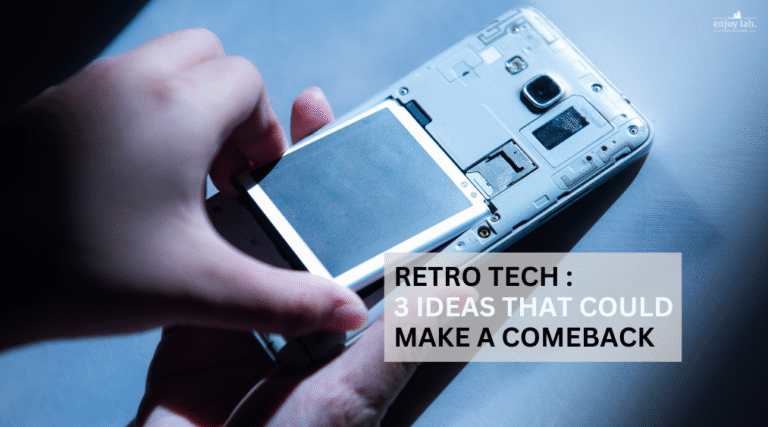Emotional intelligence (EI) is increasingly critical in modern times.
Growing up, we Gen Xers were taught the route one to success. Like many others, I also worked hard to get my qualification and later started my career in my aspired profession. Our era, then, was about climbing the corporate ladder, keeping our heads down, and letting results speak for themselves.
However, as the world evolves and is now in an AI-age, things have changed. Increasingly, the conversations, be it online or offline, has centered around the need for emotional intelligence.
For some Gen Xers, we probably started to hear about the need to have “EQ”, but back then, it always sounded like corporate jargon or a buzzword invented for HR seminars.
Nevertheless, the question remains: Does emotional intelligence or EI truly matter to Gen X?
Emotional Intelligence vs. EQ — Clearing Up the Jargon
First and foremost, I think we need to clear this up. What is emotional intelligence, and what is EQ? Are they the same? The terms “emotional intelligence” and “EQ” are often used interchangeably, leaving many of us confused. 🤣
We tend to live with this confusion for years, since it hardly “seems” to impact our development or growth. With EI’s growing importance, I think it is better to have some clarity.
While both terms seem to be related, they’re actually not the same.
Emotional intelligence refers to our ability to recognize, understand, and manage our own emotions, as well as those of others. It’s about navigating complex social dynamics, reading a room, and responding appropriately under pressure.
On the other hand, EQ or Emotional Quotient, is a way to measure emotional intelligence, much like how IQ measures cognitive intelligence. Think of EQ as the score of our level, while EI is the skillset you’re applying every day.

Understanding this difference matters. It helps clear up the concept and identify our potential gap so that we can prepare to nurture it.
Why Emotional Intelligence Matters More Today Than It Did for Gen X Back Then
So, it begs the question: why is emotional intelligence more important today? Long long time ago, our workplaces tended to be more hierarchical. Decisioning was always top-down, and EI wasn’t something we discussed or even acknowledged. And it is hardly the key focus in any part of career development.
For sure, it wasn’t the main focus in my engineering career! And the most we always heard is that “the person is high in EQ”.
However, the modern workplace has transformed. Organizations are now flatter and more collaborative. Teams can span continents and time zones, and communication is increasingly digital and nuanced. As a result, emotional intelligence has become the glue to manage diverse teams.
Moreover, with flexible work arrangements incorporated, it means less chance for us to check our colleagues’ moods or body language. And by relying on email or chat, where these messages are most of the time, without the emotional tone. Imagine if you weren’t good at the command of English or communication skills, some messages may be misinterpreted and cause unnecessary conflicts!
For Gen X professionals, who grew up with the route one path, this demands a new skill set. In addition, those who lack emotional intelligence can unintentionally alienate their teams, leading to disengagement or high turnover, since some Gen X may be in leadership positions by now.
Consequently, having emotional intelligence is no longer optional. It’s a core critical skill.
Where Emotional Intelligence Shows Up in Everyday Life
To some, emotional intelligence may still sound like a fuzzy concept. Hence, in order to understand better, we can look at how it influences every sphere of life, from boardrooms to family dinners.
In Work Scenarios
Consider a sales meeting. A professional with high emotional intelligence will listen actively, detect subtle cues about a client’s concerns, watch their body language, and adjust their pitch accordingly. Conversely, a salesperson lacking emotional intelligence pushes forward with a scripted pitch, keeps pushing his or her agenda without empathizing with the client’s pain, which ultimately leads to losing the deal.
Typically, most salespeople are trained to adopt a listening skill framework to ensure this situation of poor EI is avoided. For instance, the 80:20 listening framework.
In leadership, the stakes are even higher. Managers who possess strong EI can manage conflicts, foster loyalty, and create environments where team members feel valued. Without this skill, managers will act defensively to any feedback or dismiss team input, breeding resentment and leading to high turnover.

When comes to team collaboration, emotional intelligence is key. The ability to read the room, understand body language, adjust tone, and value individuals are the qualities of a person with high EI. On the other hand, the lack of it can cause bad cohesions, stall projects, and infighting.
In Personal Growth
The importance of emotional intelligence extends well beyond our professional lives. Without a good EI, we can feel drained, and misunderstood messages lead to unnecessary emotional stress. Furthermore, good EI also enables us to navigate the personal transitions that often come in midlife, from caring for aging parents to redefining personal goals.
How Gen X Can Start Developing Emotional Intelligence
The good news is that emotional intelligence isn’t fixed. It’s a skillset that can be nurtured and developed over time.
For instance, I feel I am more developed in EI when compared to my younger self. The biggest shift is coming from how I inculcate the habit of listening skills. Not going to lie, I do admit I had poor listening skills when I was younger. This leads to conflict at work and also personal life.
And from my experience, to improve our EI, we must first start the journey with self-awareness and a willingness to learn. Embrace the humble shell. Then we can self-reflect. For that, we need new habits and behaviours, for example like having an open mind, listening actively, and being less defensive.
Secondly, always seek feedback. Ask friends, trusted colleagues, or mentors for honest insights about how you’re perceived in certain situations. While it can be uncomfortable, this feedback is an invaluable step towards building up your EI.
Third, explore mindfulness practices. For example, avoid “jumping the gun”. Mindfulness helps you remain calm and avoid knee-jerk reactions in high-pressure situations. Practice daily to improve your self-regulation and manage your emotional balance.
Emotional intelligence can be nurtured if you are determined to improve!
Books and Resources to Boost Emotional Intelligence
Here are wealth of reading resources that you can leverage:
- “Emotional Intelligence” – Daniel Goleman
The foundational text that introduced the world to EI and its workplace implications. - “Emotional Agility” – Susan David
A guide to navigating life’s twists with emotional flexibility. - “Nonviolent Communication” – Marshall Rosenberg
An excellent tool for improving empathy and dialogue in both work and personal life. - TED Talks:
- Brené Brown on vulnerability and connection.
- Simon Sinek on empathy in leadership.
Final Thoughts: EI as the New Survival Skill for Gen X
As we step into the AI age, emotional intelligence is essential because it enables us to do what machines cannot: understand, manage, and connect with human emotions. EI ensures that as technology advances, our workplaces and societies remain human-centric, ethical, and resilient, where these qualities are what machines cannot replace.
The concept of EI, though, sounds easy to understand, but it may not be that easy for some to nurture. It’s ok, it takes time to change and improve.
The most important thing is to acknowledge its importance.
So, does emotional intelligence matter to Gen X? Absolutely. It might just be the most important skill we can invest in for the future.
Technical skills may open doors, but emotional intelligence keeps us in the room, and helps us lead it.
Related reference reading:








